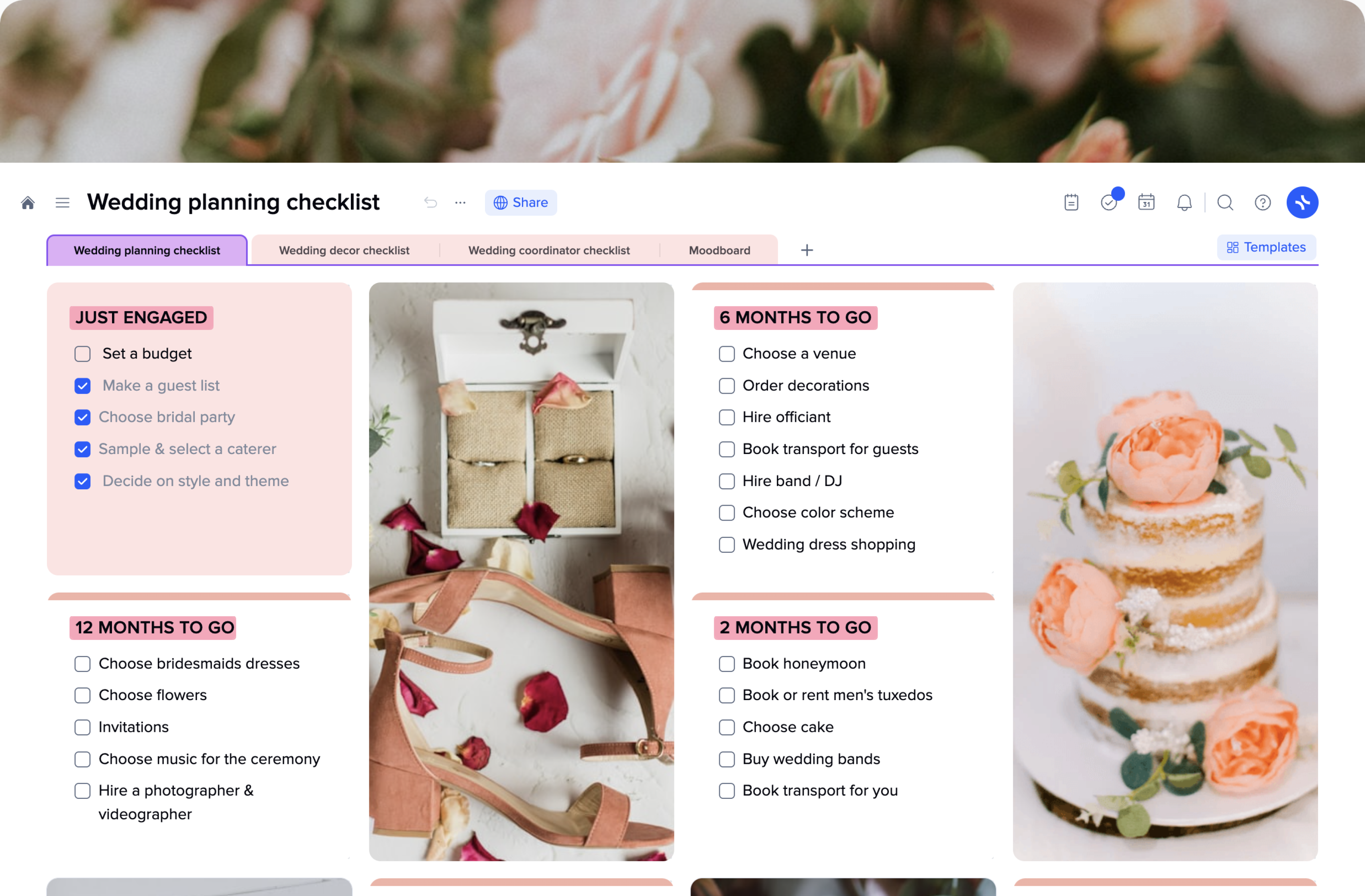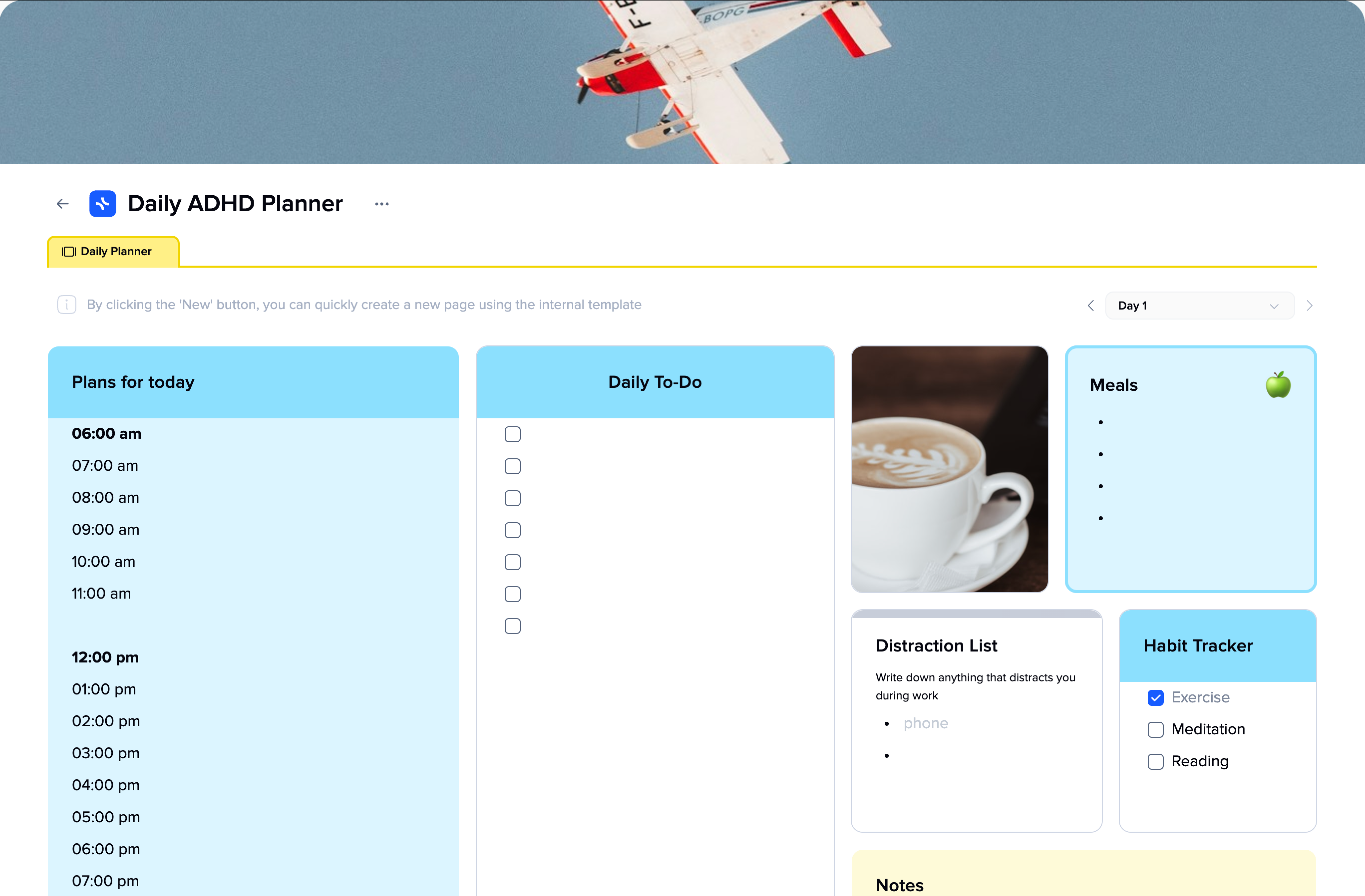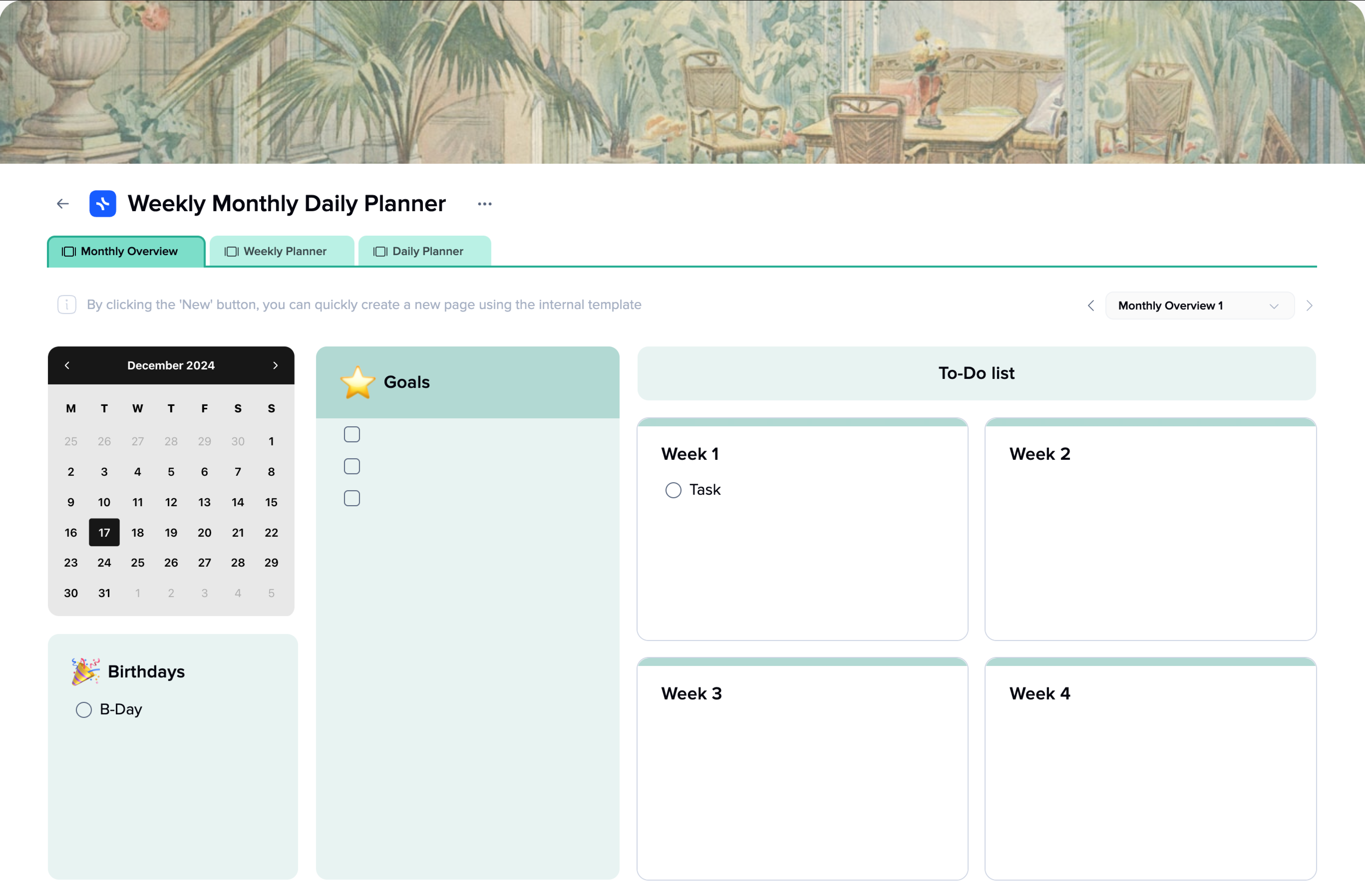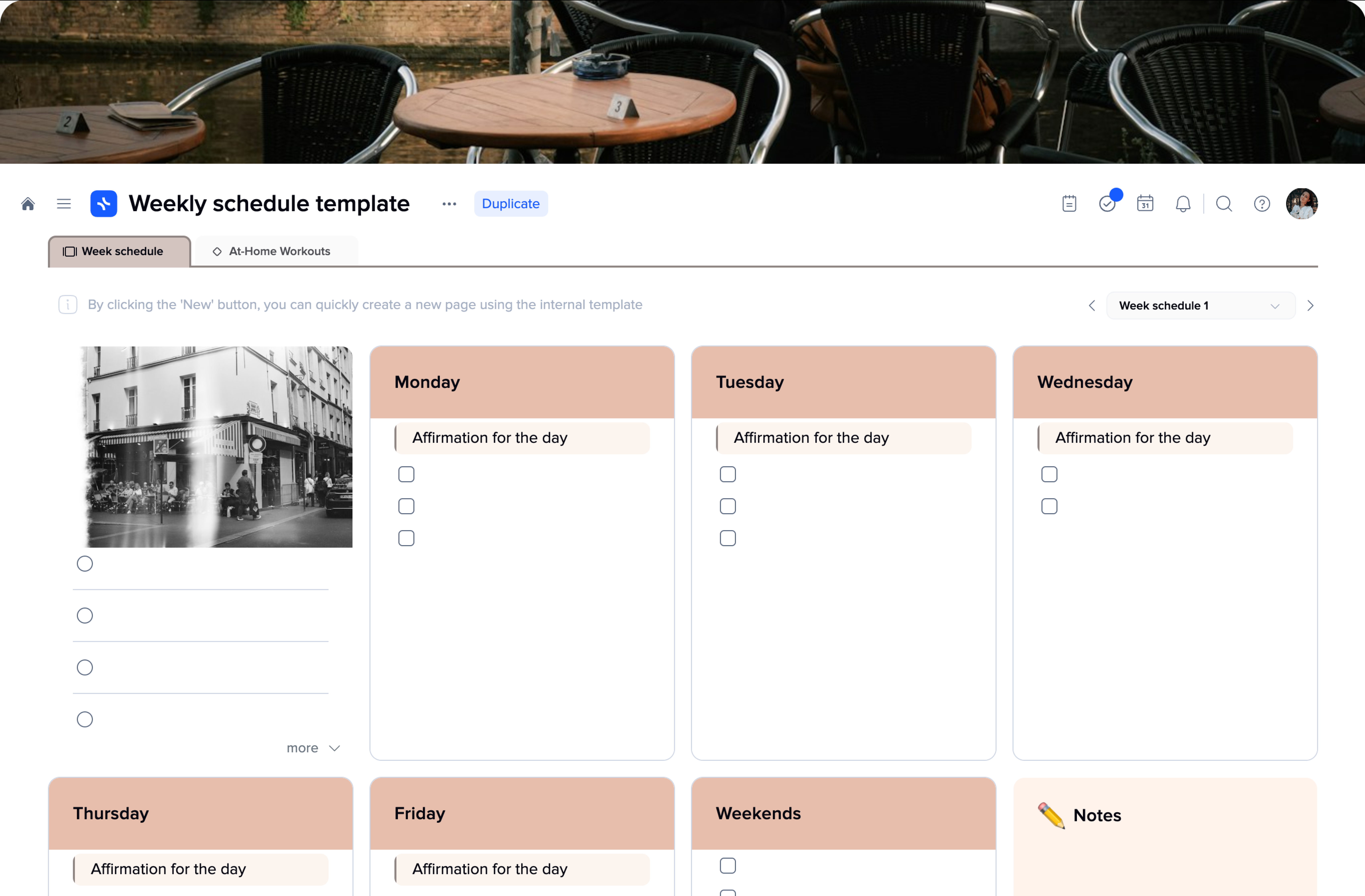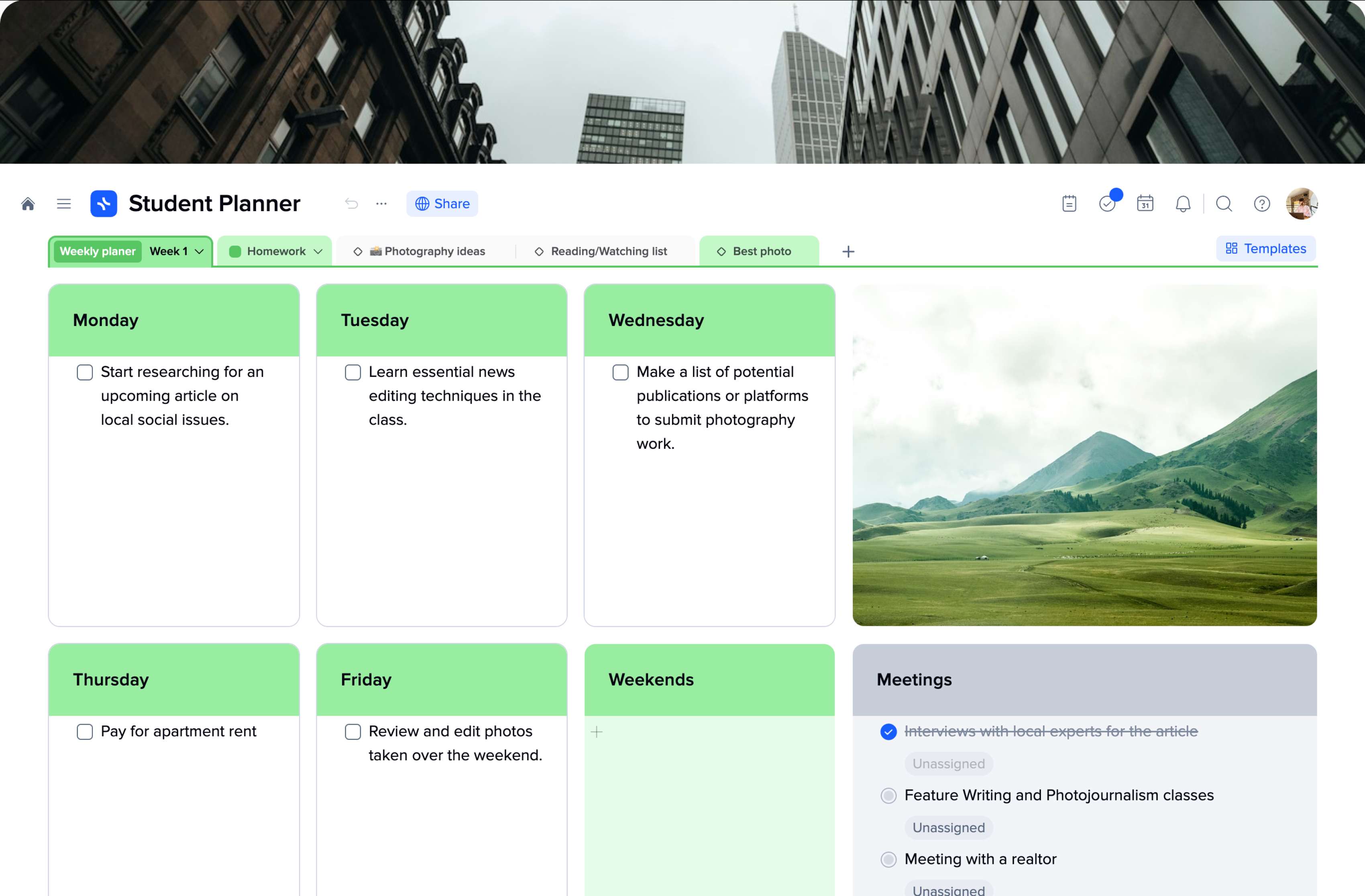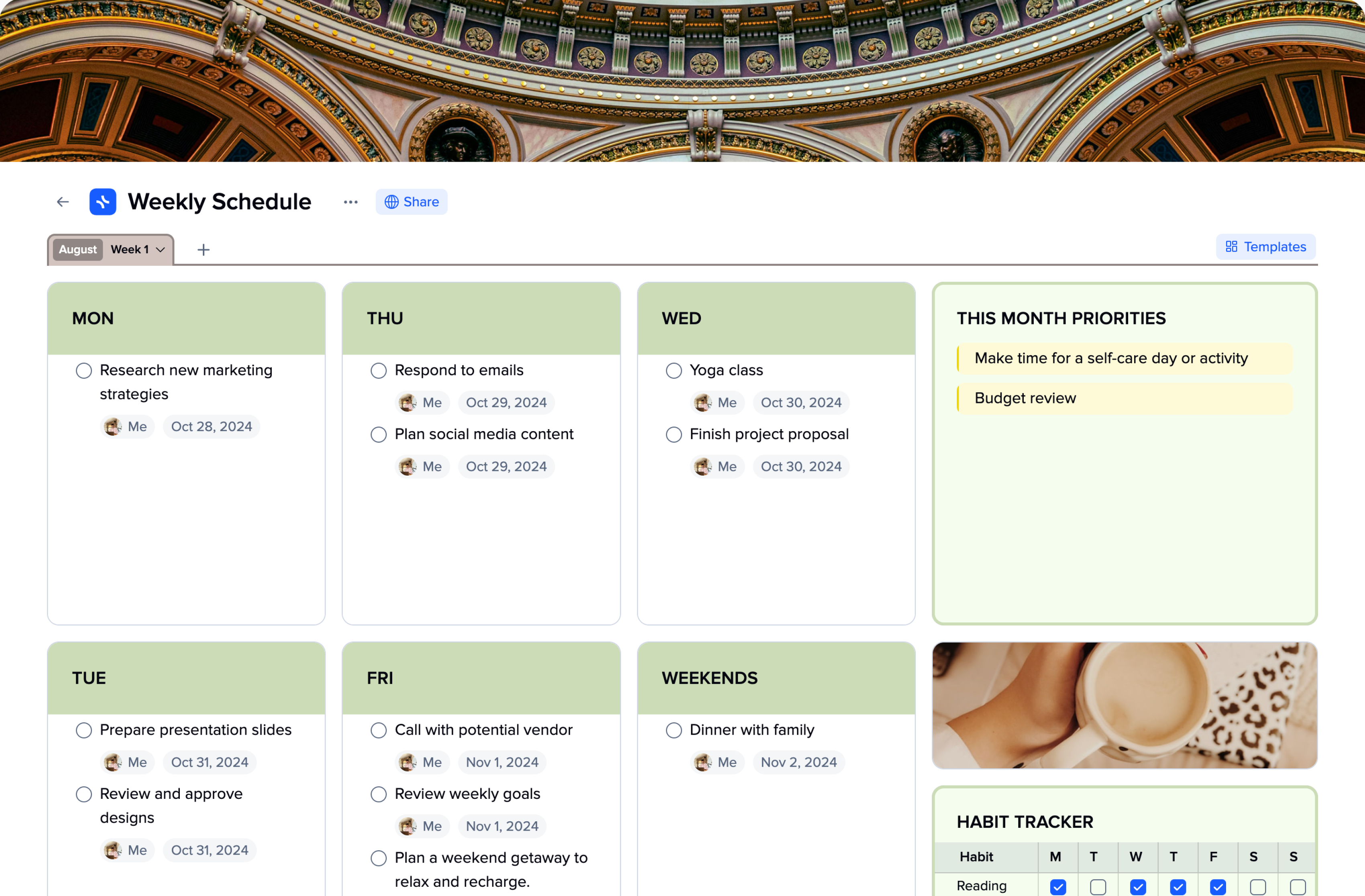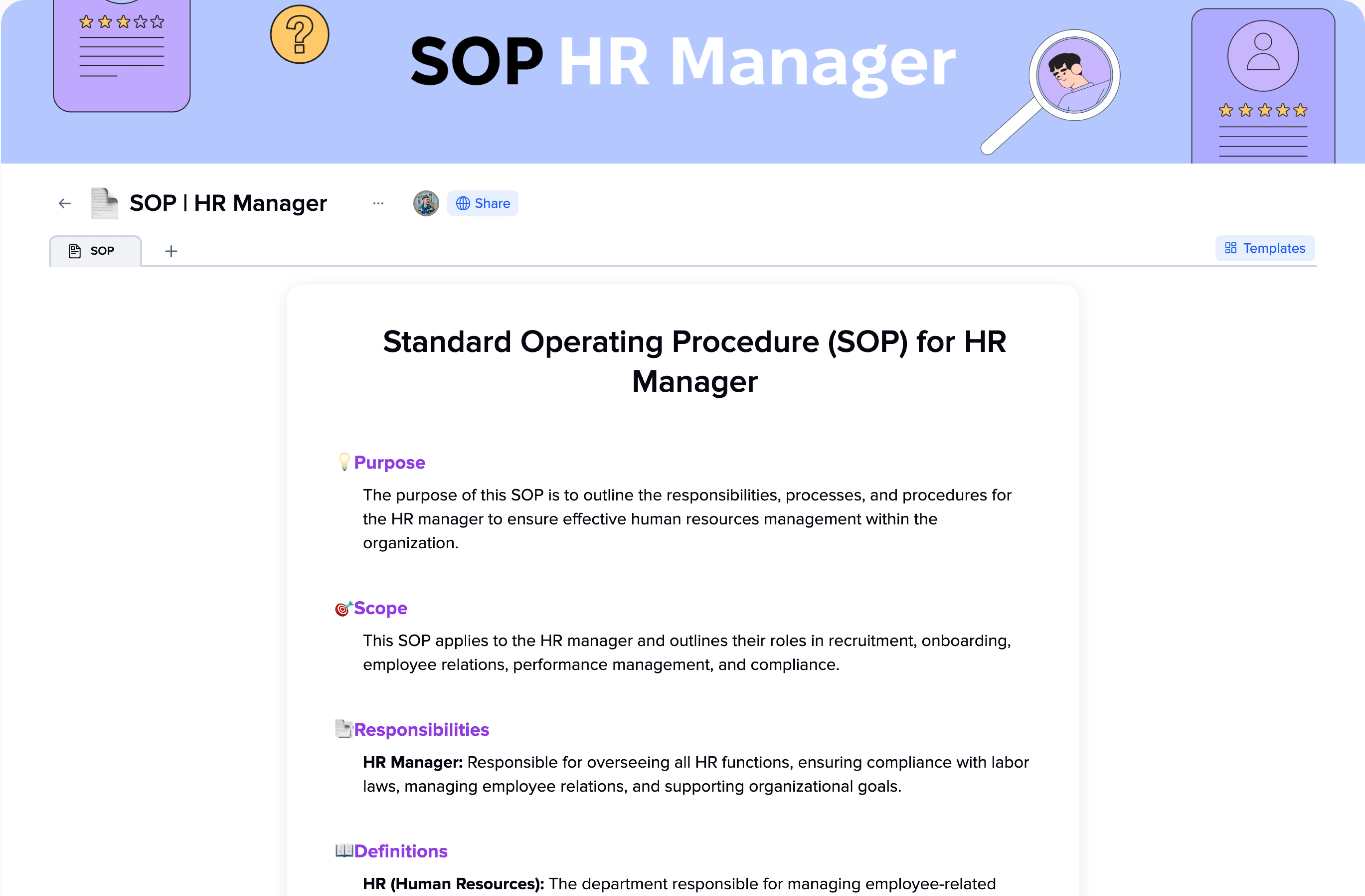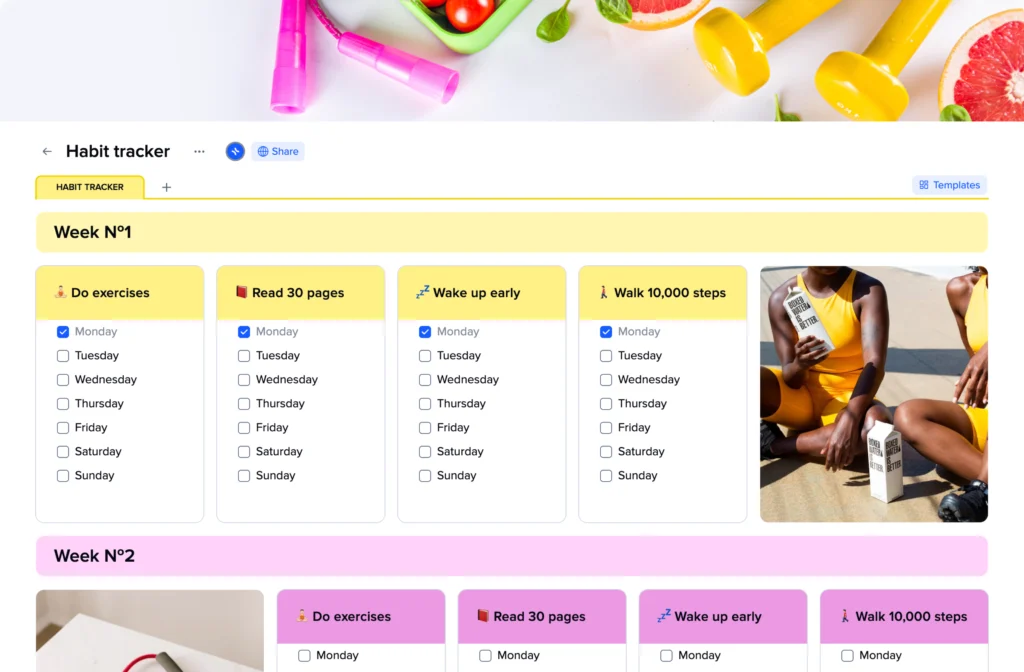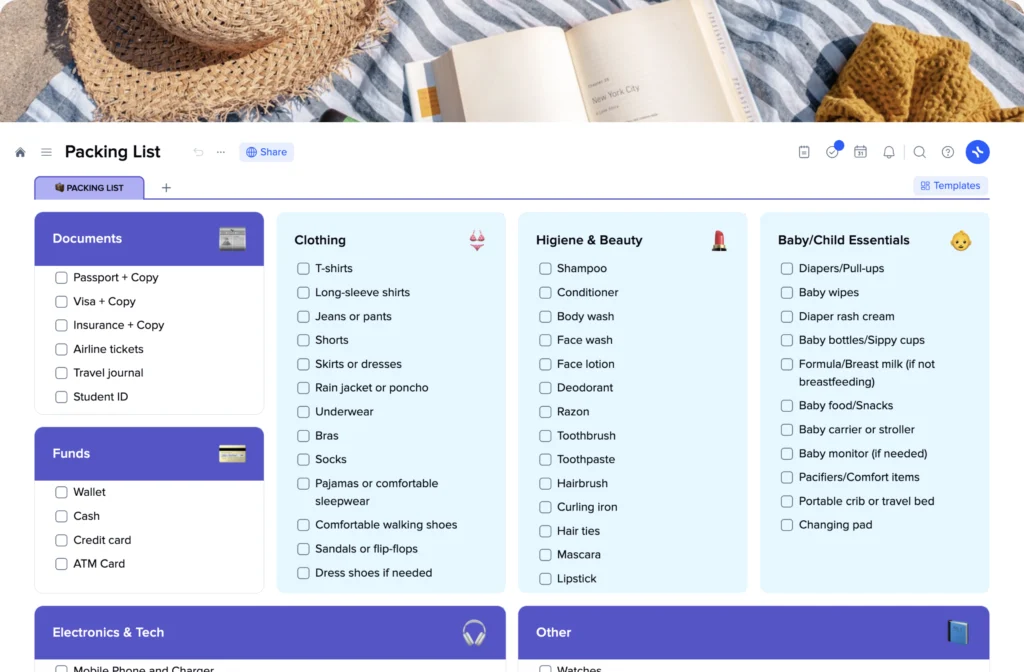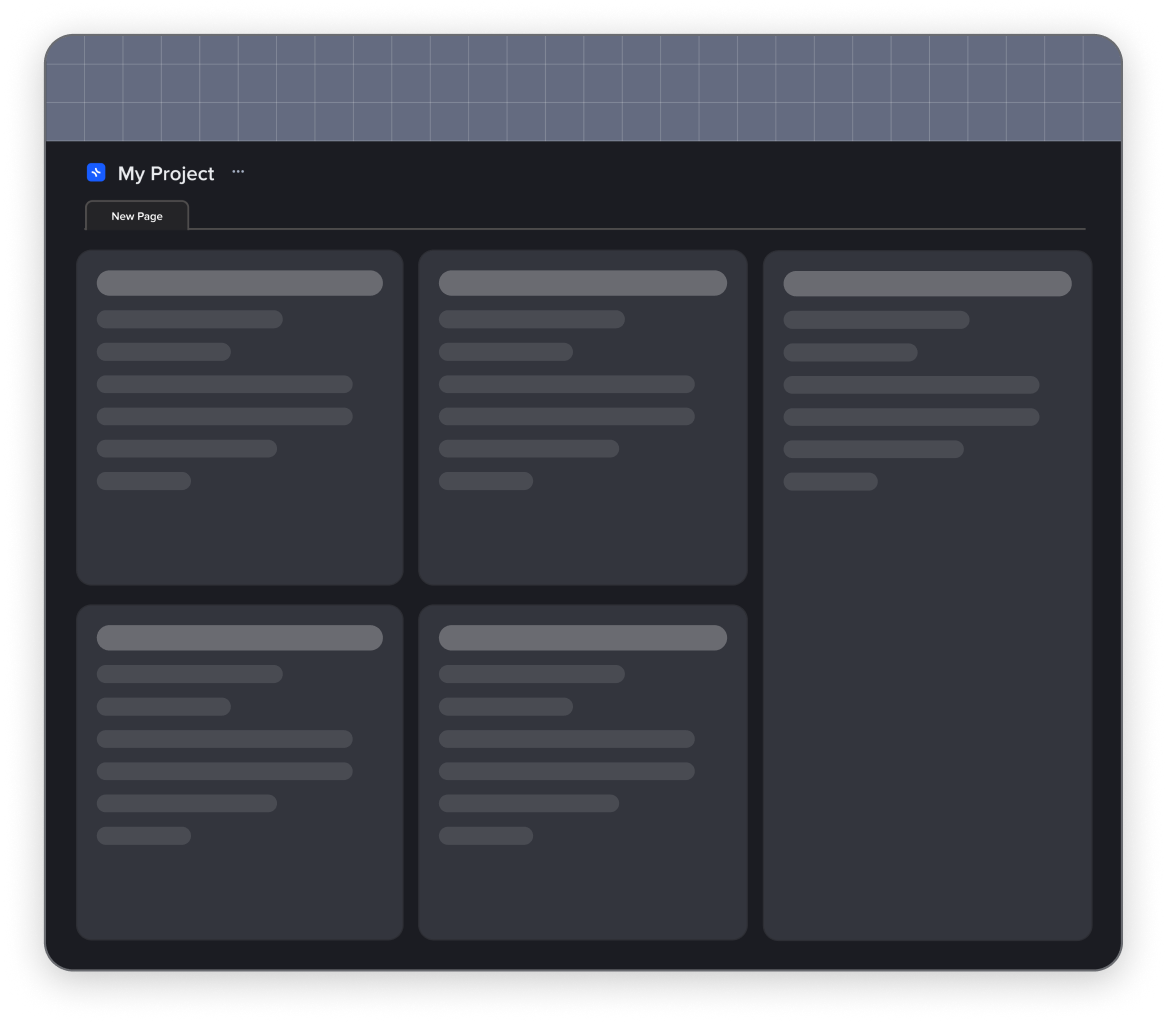Wedding Planning Checklist Template
The wedding planning process takes weeks and months to make that day special for the couple and guests. No wonder planning such an event requires a lot of effort. The bigger the wedding you want, the more time, energy, and money you need to invest.
A free wedding checklist can help you reduce stress, manage your budget, and stay on track with deadlines. Whether having a big fancy wedding or a small backyard wedding, a checklist is your guide through stress-free planning and having a memorable day.
Why is it important to have a wedding checklist?
A wedding checklist or a wedding to-do list template is a special type of checklists templates will coordinate all the arrangements you need to make and ensure you don’t forget anything. A wedding planning checklist provides a structured, itemized to-do list and timeline, making it easy to coordinate all the preparations.
That’s why it’s necessary to find a responsive, flexible, intuitive template with sections for all the details you need to organize by default. Google Sheets, although quite a popular option, lacks most of these features. A printable wedding planning checklist might lack customization options and allow you to insert information only one time.
Wedding Checklist Categories
A good wedding planner covers all the aspects you need to pay attention to organize a wedding day you or your clients want, from choosing the perfect wedding date and engagement ring to making a guest list and deciding on a wedding theme.
Wedding Dress and Apparel
-
Bride’s dress and accessories
-
Groom’s attire
-
Wedding party outfits
Flowers
-
Bridal bouquet
-
Boutonnieres and corsages
-
Ceremony and reception decorations
Announcements
-
Save-the-dates
-
Invitations
-
Thank you cards
Rehearsal dinner
-
Dinner arrangements
-
Participant coordination
Ceremony
-
Officiant
-
Entertainment and music
Reception and Wedding Budget
-
Venue selection
-
Catering and bar services
Honeymoon
-
Destination selection
-
Travel arrangements
-
Packing list


